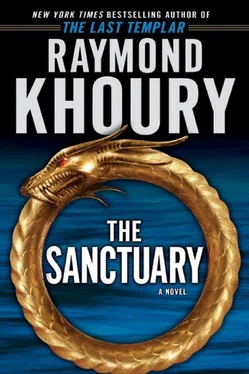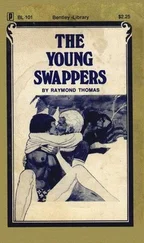He draped it over and led her to a waiting horse, the others watching her every move in respectful, if intrigued, silence.
Philadelphia — December 1783
The fireplace crackled in the small but comfortable room as Thérésia stared out the window. A light dusting of snow was falling on the trees outside, the flakes twinkling in the suffused moonlight as they glided to a gentle rest.
She knew he wouldn’t be coming back.
She’d known it at the quayside in Lisbon, almost two decades earlier.
Had it been that long ago?
Her face relaxed into a bittersweet smile at the memories floating through her mind.
Thérésia hadn’t wanted Sebastian to leave, but she knew he had to. Those years in Lisbon had been the happiest, the most fulfilling of her long life — living with him, traveling in his company, learning with him, and, of course, raising their young son together. She had never wanted it to end, she desperately wanted him to stay or take her and Miguel with him, but she realized it wasn’t possible. He had to follow his destiny, and she had to keep their son safe.
His leaving her, and her move across the ocean, had — as he’d promised — brought her peace. No one had bothered her or Miguel — Michael now — since they’d settled in Philadelphia. The City of Brotherly Love had lived up to its name. The last few years had been turbulent — revolutions usually are — but, mercifully, she and Michael had survived the turmoil and with the Treaty of Paris now signed, it looked as if the worst was well behind them.
How long she would live to enjoy the peace, though, was a question now haranguing her. The small, hard lumps that had appeared under her arms and in her left breast were troubling her. She had prided herself on her independence and her fitness throughout the troubled times of the conflict and was certainly as fit as a sixty-year-old widow — that small lie had readily been accepted upon her arrival in the new city — could be. But since discovering the lumps, she felt a tiredness in her bones when she woke up every morning, a shortness of breath, a heaviness in her head that accosted her in worrying waves. She knew that the blood that had, in the last week, appeared when she coughed was a bad augur.
She didn’t have much time left.
She wondered how Sebastian was keeping. She imagined he was drinking the distillation again and smiled inwardly at the thought that he would be little changed from how she remembered him. She caught a glimpse of her own, wrinkled face reflected back at her in the thin glass of the window and willed him to success. What a wonderful gift it would be. A most worthy of quests…even if it did cost her the love of her life and cost Michael his father.
She saw her son appear at the gate and make his way into the house. He had grown into a fine young man and had performed admirably during the troubles, working alongside his mother at liaising with the French envoys who were assisting the revolutionary effort against the British. His diplomatic and organizational talents were evident, and throughout the conflict she had imagined great things in his future, in his adopted homeland. But with each passing day, he also reminded her more and more of Sebastian. She could see it in his eyes, in his stance, even in small things such as the way he held a quill. And as the boy grew into the man, she knew she couldn’t ignore his unique provenance.
She also couldn’t ignore his father’s legacy.
She had promised Sebastian she would never tell the boy what had led his father to leave them. Sebastian had made her promise it to him, and, at the time, she saw the sense in it. He wanted his son to have a normal life. He didn’t want him to have his life ambushed by an oath he had himself made. It was his burden to bear, not his son’s.
It was a promise she could no longer keep.
She owed it to Sebastian. To his memory and to his legacy. If he was going to die away from her, alone, in a foreign land, she had to try to ensure that his death wouldn’t be in vain.
Deep down, she knew he would have wanted her to.
“Mother?”
She heard Michael take off his boots and make his way to join her in the sitting room. She turned to him, the pain in her limbs receding at the sight of his radiant face. She saw the quizzical expression on his face at the sight of her and saw his eyes drop lower to the ancient, leatherbound book with the strange circular symbol tooled into its cover that she held to her chest.
“I have something to tell you,” she told him as she invited him to join her.
Mia stirred in the narrow bed. Beams of dusty sunlight bathed the room around her. Still weary and foggy-brained, she pushed herself up to her elbows and looked around. Plain, hand-finished walls, simple oak furniture, and lace curtains greeted her in hushed silence.
She scoured her mind for clarity, and a cloud of confused images slowly drifted into focus. She remembered being part of a slow convoy, riding into the night, leaving behind the mangled corpses. She remembered the furtive glances of the men and women accompanying her, as well as the mokhtar, riding directly ahead of her, keeping a supportive eye on her as they snaked their way down the mountainside until they’d reached a village she didn’t recognize. She remembered being led into one of its houses, sitting at a rickety kitchen table by a blazing fireplace, being offered a hot, herbal infusion of a flavor she wasn’t familiar with, and being watched with warm curiosity by the mokhtar and an elderly couple as she drank it gratefully.
She felt as if she had a mild hangover and guessed they must have given her some kind of sedative, which she thought was undoubtedly the right call. The heavy-headedness soon started to lift. A cotton undergarment and a beige, long-sleeved dress, delicately embroidered around its sleeves and collar, had been left for her on a chair by the small window. Some sheepskin moccasins were on the floor next to it. She slipped them all on, opened the window and swung the wooden shutter away, and felt the soothing warmth of the sun on her tired skin.
She looked out. The cluster of low-built houses squatted at the bottom of a valley. They were part mudbrick, part stone, and had the same thatched roofs as those in the Yazidi village. Beyond the small settlement, she could see fields and tended meadows of early-winter earth spreading out to the foothills of the jagged peaks that ringed the valley.
She left her room and wandered through the house but didn’t see anyone. She went through the kitchen and out the door. The air was surprisingly warm, markedly different from the chill of night at the top of the mountain, and she could hear nothing apart from a faint breeze that rustled the branches of the pistachio trees, and the burbles and trills of small birds. The utter tranquillity was a shocking contrast to the mayhem of the day — and night — before.
She wrapped her arms around her and wandered down a narrow path, past a couple of small houses and a barn. The place had a Walden-esque, calming feel to it that, right now, was most welcome. It reminded her of a small Amish community in its tidy, unapologetic simplicity and its splendid isolation. She encountered a family — parents and two boys in their early teens — unloading some wood from a horse-drawn cart. They smiled politely at her and kept working. Farther along the dirt pathway, she came across two women who led a mule that was loaded with a basket of bread. They acknowledged her with warm eyes and a half-nod, without stopping.
She kept going, drinking in the serenity and the fresh mountain air, feeling herself coming back to life. She heard faint voices to her right and glimpsed some figures standing at the bottom of a small ridge, deep in conversation. She saw the mokhtar, along with an elderly couple whom she recognized vaguely as the ones who had given her the drink the night before, and — to her wild relief — standing next to them were Evelyn and Webster.
Читать дальше












